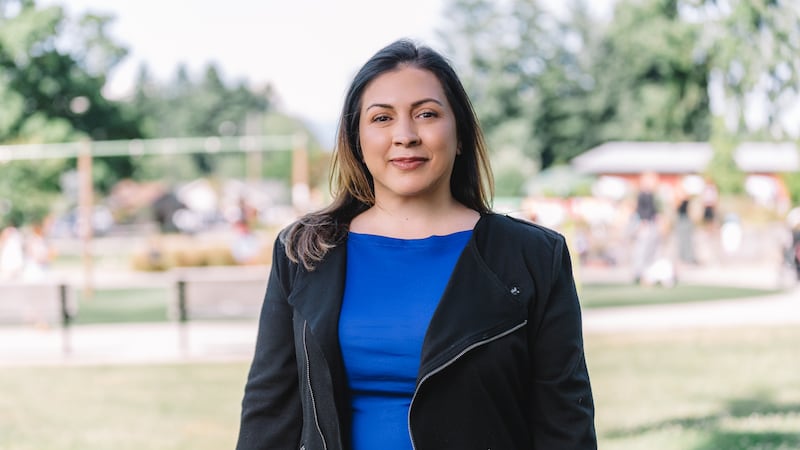A report sent this spring to City Commissioner Carmen Rubio showed that one of the most important boards in the city was paralyzed by an ideological split. Rubio’s decision echoed King Solomon’s: She split the commission in two.
What is the document? In April, Commissioner Rubio received a report from an organizational consultant about the Planning and Sustainability Commission, an independent, volunteer body that’s historically advised the Portland City Council on land use and planning issues. The commission is housed under the Bureau of Planning and Sustainability, a bureau Rubio oversees.
The report revealed an identity crisis: Members of the 11-member commission focused on climate resilience were sparring with other commissioners who prioritized land use issues.
Bureau directors and staff felt that the commission at times overstepped its bounds and didn’t understand the consequences of some of its decisions in practice. One example: The commission recommended in 2020 that the city require private builders to design space on the perimeter of new construction for homeless people to rest.
Worse, commissioners themselves didn’t understand the scope of their authority: Could they make decisions? Or could they just send strongly worded letters to city commissioners and bureau directors?
Why does it matter? The report shows an important commission in crisis and described it as being rendered ineffectual because of unclear responsibilities, split ideologies among the commissioners, and years of muddled guidance from city leaders, including Rubio and her predecessors.
One former PSC commissioner interviewed in the report said: “The mayor and Commissioner Rubio should share their vision and marching orders to go do something. Maybe they are too new, and they don’t know how to give direction to the bureau. Right now, there is no ‘why’…I don’t see a vision today.”
It’s hard to understate the importance of this commission. It advises city leaders on land use planning and critical decisions on housing construction, rezoning and climate resilience in city planning. For example, it helps craft regulations on housing density and building height.
Some commissioners told the consultant the board was neglecting its core tasks in favor of advocacy.
It also observed that because the scope of the commission’s work was so vast, it placed “their efficacy and the quality of the required land use work at risk. However, many of the commissioners, especially newer members, are deeply invested in advancing the city’s climate agenda.”
The report described the commission as sometimes overstepping its authority, or making decisions without mapping out the consequences.
The latest example: The commission sent a letter to Bureau of Development Services director Rebecca Esau in July 2021, urging her bureau to take into account the city’s climate plan and seek tribal input before granting a land use compatibility statement to a fossil fuel company that operates an oil terminal in Northwest Portland.
Esau sent a hotly worded email back to the commission’s chair, Eli Spevak, urging it to stop advocating and instead work to create climate rules and regulations.
“BDS is bound by existing policies and regulations, so the most effective use of [the commission members’] time would be to work on giving BDS the regulatory tools it needs to get the results the [commission] and City Council would like to see regarding future development and land uses in Portland,” Esau wrote.
(Despite that, the bureau did, indeed, deny a LUCS for the oil terminal, citing environmental impacts and tribal rights—and after receiving crushing political pressure from both state and local officials.)
What resulted from the report? On April 26, Commissioner Rubio directed the Bureau of Planning and Sustainability to split the commission into two distinct panels: one focused on sustainability, the other on planning.
Both, as of now, will be housed under BPS, a bureau with fewer than 200 employees that will have to respond to two separate boards steering its policy.
Magan Reed, spokeswoman for the bureau, tells WW, “We recognize that the scope of responsibility for the PSC has increased substantially over the last several years and is now more than one voluntary group of people can manage.”
Mike Houck, director of the Urban Greenspaces Institute, served on the commission for 11 years before retiring pre-pandemic. Houck “totally disagrees” with the decision to split it up, he says, because when the commission first merged planning and sustainability in 2010, it “elevated issues related to sustainability” because the commission had more political clout.
“I feel very strongly that PSC should address land use issues and issues related to climate change,” Houck says. “There’s a huge nexus with land use decisions.”
Rubio tells WW: “Both stakeholders and members felt the commission was losing its impact, particularly as it relates to the planning function of the bureau.…I welcome greatly constructive feedback and conversations so we can make sure we get the structure and scope right-sized where Portland needs it to be today.”
